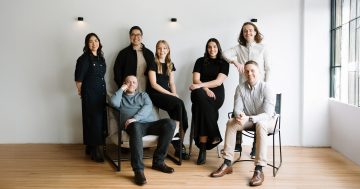Michelle Gibbings* says getting from here to there in a modern career often requires making a few detours.
 In the Lewis Carrol book, Alice’s Adventures in Wonderland, Alice follows the White Rabbit and falls down a rabbit hole, which is the start of a series of adventures.
In the Lewis Carrol book, Alice’s Adventures in Wonderland, Alice follows the White Rabbit and falls down a rabbit hole, which is the start of a series of adventures.
If you recall the story, you’ll know that at one point she comes across the Cheshire Cat in the woods and inquires:
“Would you tell me, please, which way I ought to go from here?”
“That depends a good deal on where you want to get to,” said the Cat.
“I don’t much care where,” said Alice.
“Then it doesn’t matter which way you go,” said the Cat.
“So long as I get SOMEWHERE,” Alice added as an explanation.
“Oh, you’re sure to do that,” said the Cat, “if you only walk long enough.”
We all want to get somewhere. The problem is, sometimes it can be hard to pinpoint what that somewhere is.
We expect the journey to that somewhere to be linear (and perhaps easy).
Like most good things in life, getting to an excellent destination often involves a few roundabouts, detours and perhaps even getting lost.
It’s in those moments of challenge and frustration that we often discover the best of who we are, and unexpected opportunities arise.
This too applies to your career.
The once held view of careers as linear progression is long gone.
As the world of work changes not just the work we do, but how we do it, it’s time to reimagine the idea of career planning.
In the book, 5 Patterns of Extraordinary Careers, the authors, James M. Citrin and Richard Smith, outlined three core career phases.
Promise: From formal education to early 30s.
Momentum: From mid 30s to early 40s.
Harvest: From a person’s 40s and beyond into retirement.
In such a linear career world, the expectation was for a person to specialise and get a trade or university degree, and to work their way up the hierarchy.
People with a career focus looked ahead with a 10-year career plan in mind.
The workforce today demands a different type of career planning.
The rapid breadth and pace of technological change is creating totally new working environments and opportunities.
At the same time, with borderless teams, co-working spaces, and the increasing rise of the gig economy, careers these days are fluid, flexible, organic and adaptive.
They require a degree of reinvention at points throughout a person’s career life-cycle.
As we have seen recently, there can be massive and unexpected curve-balls that can throw you off course.
Having been there before, I know what it’s like.
It’s hard, but it also creates space for you to work through what can come next.
What comes next can often be even better than what has come before.
Part of this is recognising there are new rules of work.
Gone is the notion of an organisation for life.
Gone is the notion of one role type or function for life.
Making the new rules of work, work for you rather than against you requires deliberate planning and action.
As Salim Ismail, the author of Exponential Organisations, said: “Today, if you’re not disrupting yourself, someone else is.
“Your fate is to be either the disrupter or the disrupted. There is no middle ground.”
Whilst his comments were referencing organisations, the same can be said for a person’s career.
Just as organisations undertake scenario planning to help them investigate and plan for potential changes and risks, so too should individuals.
This may require a shift in how you see the nature of your work.
In the past, the concept of a portfolio career was seen as something that someone does towards the latter half of their career.
However, today it equally applies to people early on or mid-way through their career.
Research shows that more than half of American millennials have a side hustle.
Having a portfolio career requires people to have a more active, flexible and engaging approach to their career, where they are ready and equipped to embrace change at any moment.
They must be intent on designing and orchestrating their own career life-cycle.
Whatever choice you make, rather than seeing the detour as a waste, embrace the opportunity that lies within.
As noted industrialist and inventor, Henry Ford said: “Whether you think you can, or you think you can’t — you’re right.”
*Michelle Gibbings is a Melbourne-based change leadership and career expert and founder of Change Meridian. She works with global leaders and teams to help them get fit for the future of work. She can be contacted at [email protected].
This article first appeared at www.changemeridian.com.au











